The preservation of stem cells, from cord blood, cord tissue, placenta, adipose tissue, or peripheral blood mononuclear cells, is a complex process that requires the highest international standards of quality and safety.
At SSCB – Swiss Stem Cells Biotech, the only 100% Swiss private biobank, we manage entirely in our laboratories in Switzerland all phases – from processing to cryopreservation – without outsourcing and without international transport of samples to third parties.
Our certifications cover all types of samples that we preserve:
In this way, we guarantee all our clients the same level of quality, safety, and traceability, regardless of the type of biological sample managed.
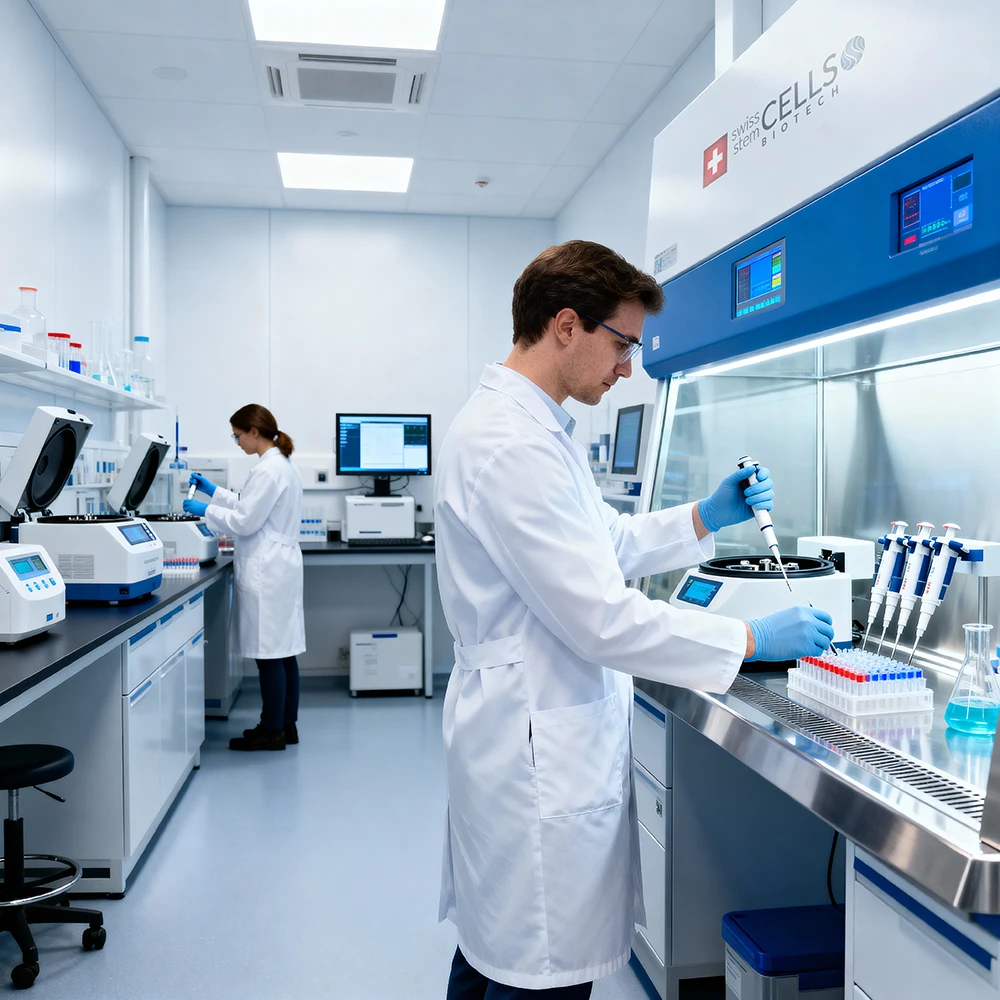
The processing is the most delicate phase of the stem cell preservation process: here the sample is processed, the cells are extracted (when necessary), and prepared for cryopreservation. Processing is an active and decisive phase, on which the future quality of the cells depends.
The cryopreservation, on the other hand, is the phase of long-term maintenance of the cells in special biocontainers: it can only be effective if the processing has been carried out correctly.
Quality certifications play a fundamental role both in processing and in the final cryopreservation.
Swissmedic is the Swiss agency for therapeutic products, the national authority that regulates and controls all medicines, advanced therapies, and cellular products.
It is the body that establishes the strictest standards to ensure safety, efficacy, and quality in the Swiss healthcare sector and is recognized internationally.
For SSCB, the Swissmedic authorization concerns all preserved samples – stem cells from cord blood, cord tissue, placenta, adipose tissue, and peripheral blood – and authorizes:
This authorization is granted only after official inspections, in which Swissmedic thoroughly analyzes environments, procedures, personnel, tools, and quality systems. It is therefore not a mere declaration, but an official recognition that confirms that SSCB operates with the same standards as public facilities and pharmaceutical companies.
In summary, the Swissmedic authorization represents absolute certainty: the biological samples entrusted to SSCB are preserved and managed according to the highest levels of safety recognized internationally.
It is the guarantee that every sample deposited today will be ready tomorrow for safe and effective clinical use, in Switzerland and around the world.
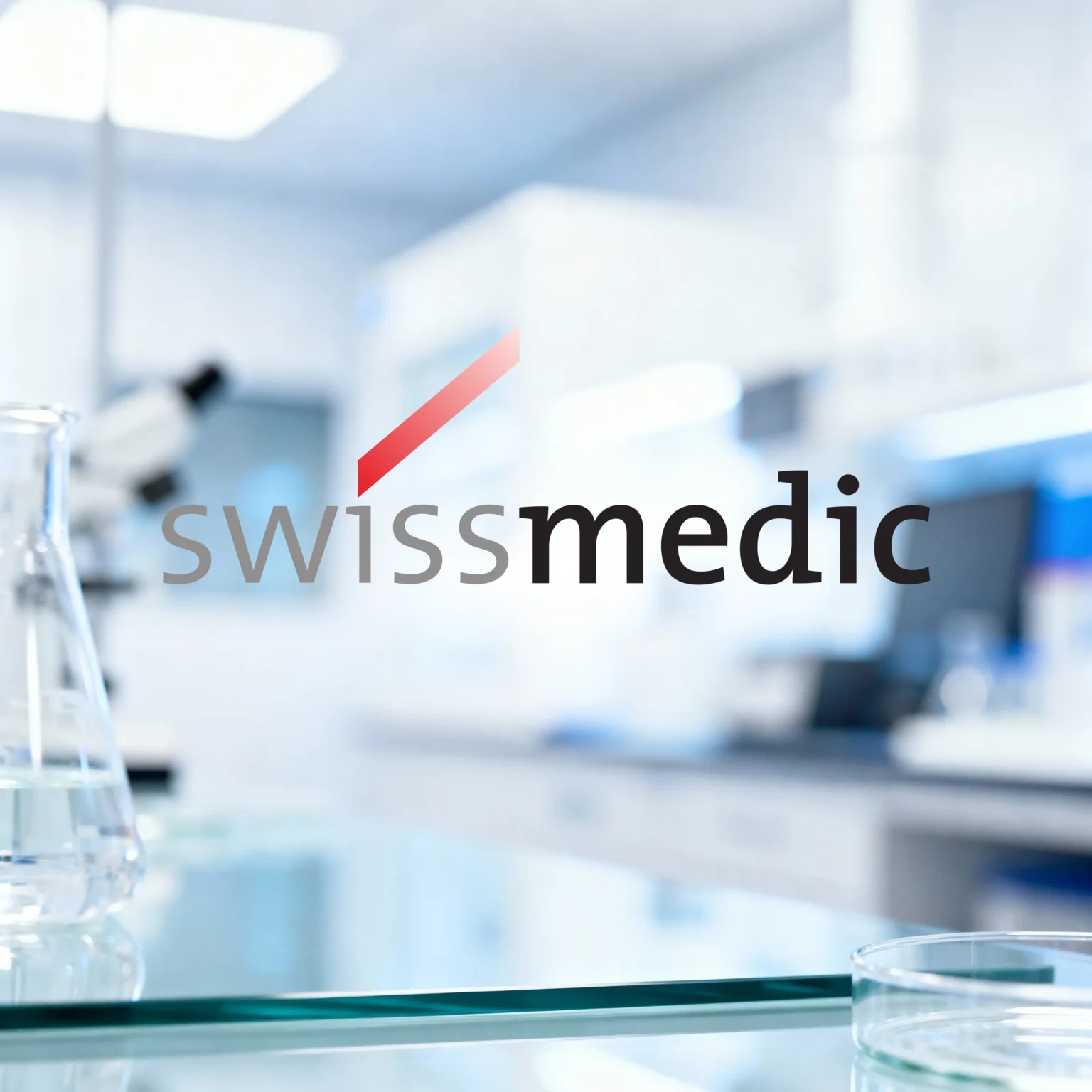
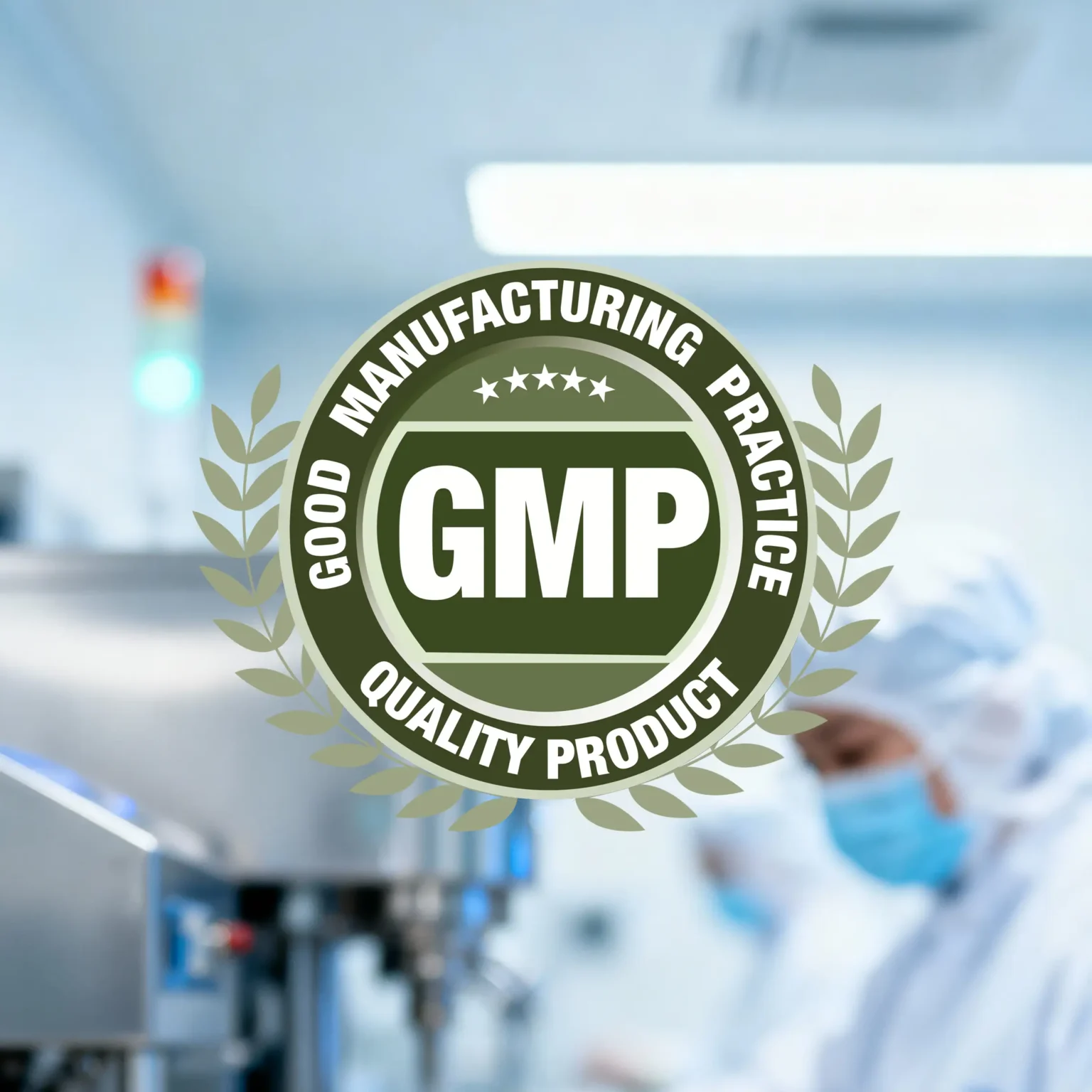
The Good Manufacturing Practice (GMP) are the Standards of Good Manufacturing, the same standards adopted internationally by the pharmaceutical industry to ensure the quality, safety, and efficacy of medicines.
In SSCB, these standards strictly regulate the processing of cord blood, cord tissue, placenta, adipose tissue, and peripheral blood.
Applying GMP means that each sample is treated as if it were a pharmaceutical product intended for clinical therapies, following traceable, reproducible procedures that are subject to constant and meticulous controls.
Specifically, GMP ensures that samples are:
The GMPs are not an accessory requirement, but constitute the heart of our quality system. GMP certification is mandatory for the processing of all cellular sources, except for cord blood, which is still processed by SSCB according to the highest standards imposed by the international accreditation FACT-NetCord, of which SSCB is the holder.
The GMPs are, for example, essential for the processing of cord tissue: once cryopreserved, this can become the biological material base for the development of advanced therapy medicinal products (ATMPs), considered today among the most promising frontiers of regenerative medicine.
For our clients, this means a unique certainty: the samples entrusted to SSCB are treated with the same rigor as that used in drug production, ensuring not only maximum safety and quality at the time of storage but also their suitability for future advanced clinical applications.
However, caution: claiming to “operate according to GMP” does not equate to being GMP certified.
GMP certification is granted only after official inspections by the regulatory authority, which verify every aspect of the business processes. For this reason, we always encourage to be wary of those who use this expression (“operate according to GMP”) without displaying the official GMP certificate and to request proof of it. At SSCB, GMP certification is real, official, and verifiable in the international registers SwissGMDP/EudraGMDP: the strongest guarantee for all our clients.
The Good Distribution Practice (GDP) are the internationally recognized Good Distribution Standards used in the pharmaceutical sector to ensure that medicines maintain their quality throughout the entire logistics chain.
At SSCB, these rules apply to the management, storage, and handling of all samples – cord blood, cord tissue, placenta, adipose tissue, and peripheral blood – ensuring that the cells remain protected and unchanged in every circumstance.
Thanks to the GDP, SSCB ensures that the samples are:
The GDP do not only regulate transportation: they represent a true quality protection network, extending from the laboratory to any potential transfer, in Switzerland or abroad.
For our clients, this translates into a concrete guarantee: regardless of where the sample will need to be sent or used in the future, its biological characteristics will be preserved with the same attention and safety that applies to the distribution of medicines.
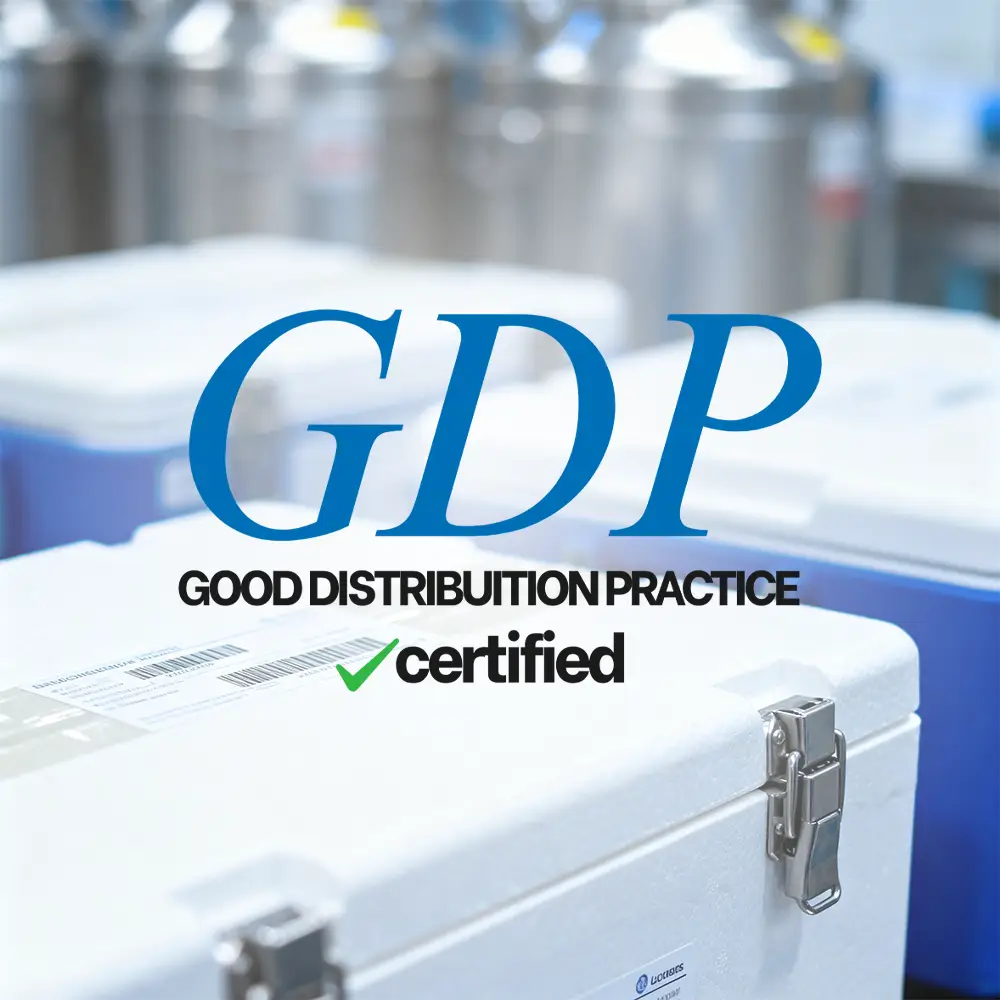
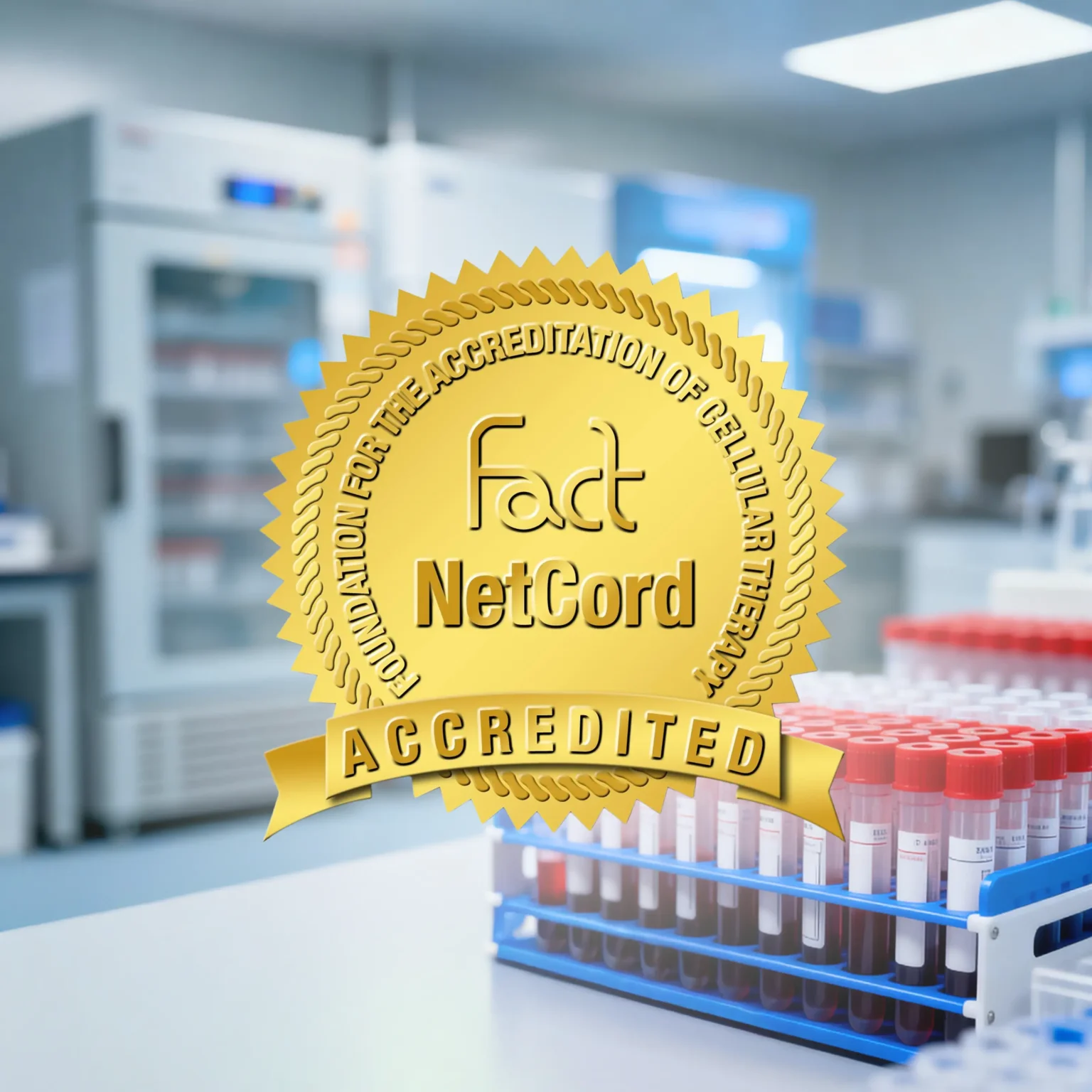
The FACT–NetCord accreditation represents the highest international standard and the most recognized in the world for the preservation of stem cells from cord blood.
This is not a generic certification, but a specific accreditation for umbilical cord blood, developed specifically to ensure that every phase – from collection to processing, to cryopreservation and distribution – complies with the most rigorous requirements of transplant medicine.
This accreditation certifies that SSCB:
Obtaining and maintaining the FACT–NetCord accreditation is an exceptional achievement: there are very few biobanks in the world that can boast it, and SSCB is the only private biobank in Switzerland to have earned and maintained it continuously since 2012. Globally, there are fewer than ten private biobanks that hold this prestigious accreditation.
This means that our clients can be assured that the samples preserved at SSCB are not only protected according to the highest quality standards but are also universally recognized and usable in major hospitals and transplant centers around the world.
The ISBT 128 standard is the international system for unique identification and traceability of biological samples, adopted by biobanks, hospitals, and transplant centers worldwide.
At SSCB, ISBT 128 applies to all preserved samples – cord blood, cord tissue, placenta, adipose tissue, and peripheral blood – ensuring that each sample receives a unique and universal code, recognized everywhere.
Thanks to ISBT 128:
This means that samples are not only securely preserved but also ready to be used in an international clinical context, without the need for further adaptations or conversions.
For our clients, ISBT 128 represents a fundamental guarantee: the sample deposited today will always be identifiable, secure, and universally usable, wherever it is needed.
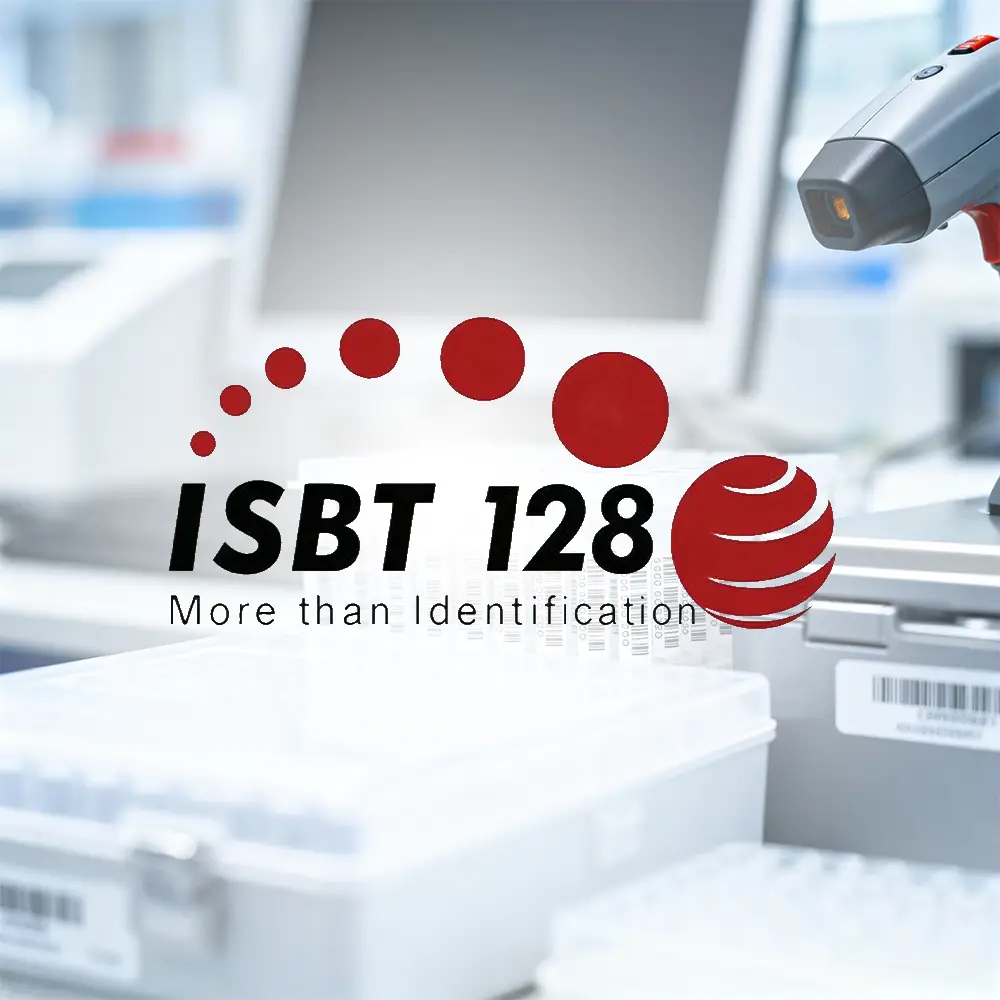
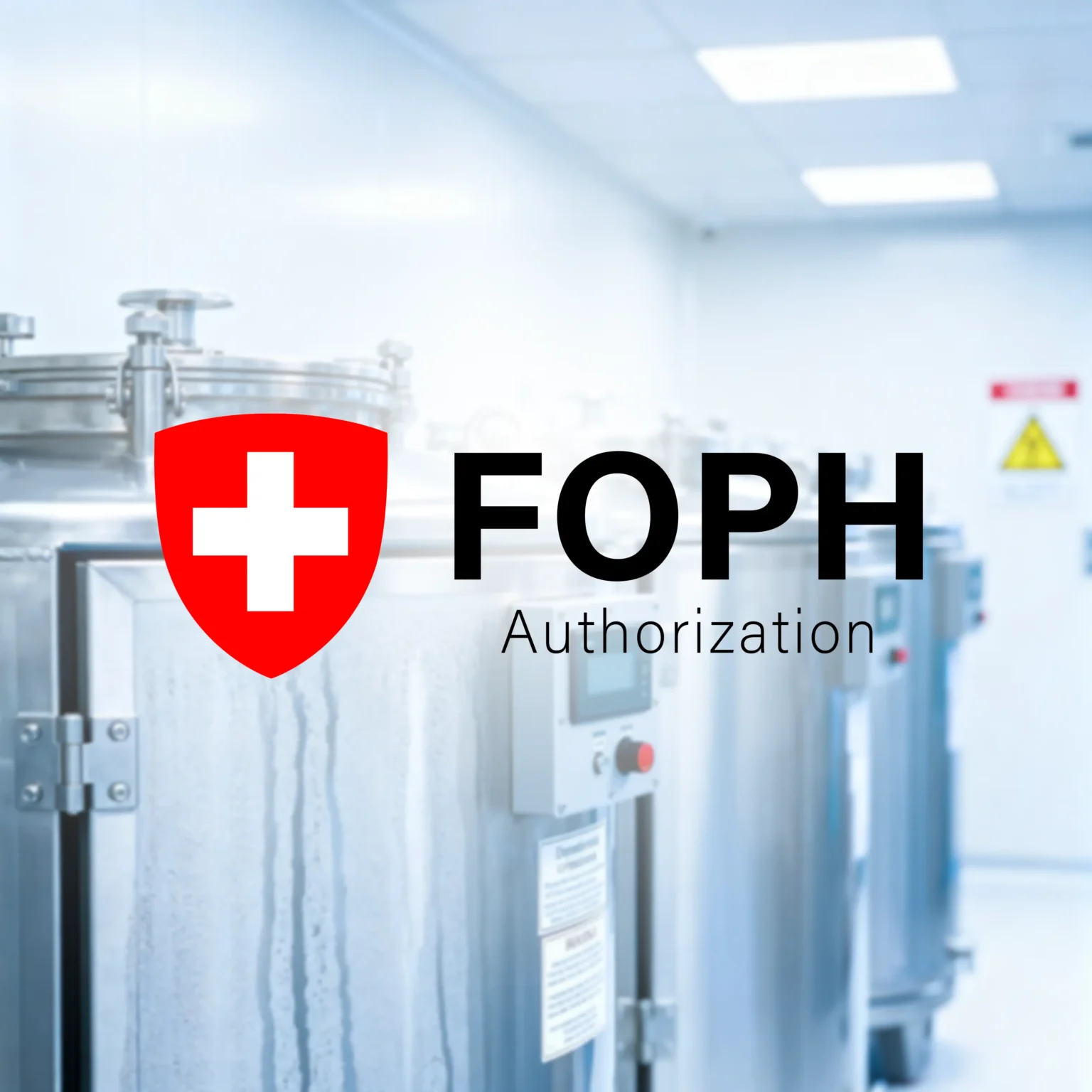
The Federal Office of Public Health (FOPH) – Federal Office of Public Health of Switzerland – is the authority that oversees public health and establishes the rules for the proper management of human cells for clinical purposes.
The FOPH authorization confirms that SSCB is fully compliant with Swiss legislation and is officially authorized to:
This authorization applies to all types of samples managed by SSCB – cord blood, cord tissue, placenta, adipose tissue, and peripheral blood – and certifies their correct, safe, and traceable management at every stage.
For our clients, the FOPH authorization represents the assurance that the biobank operates legally and in full compliance with national and international regulations, ensuring that each sample is managed with the utmost transparency, safety, and traceability.
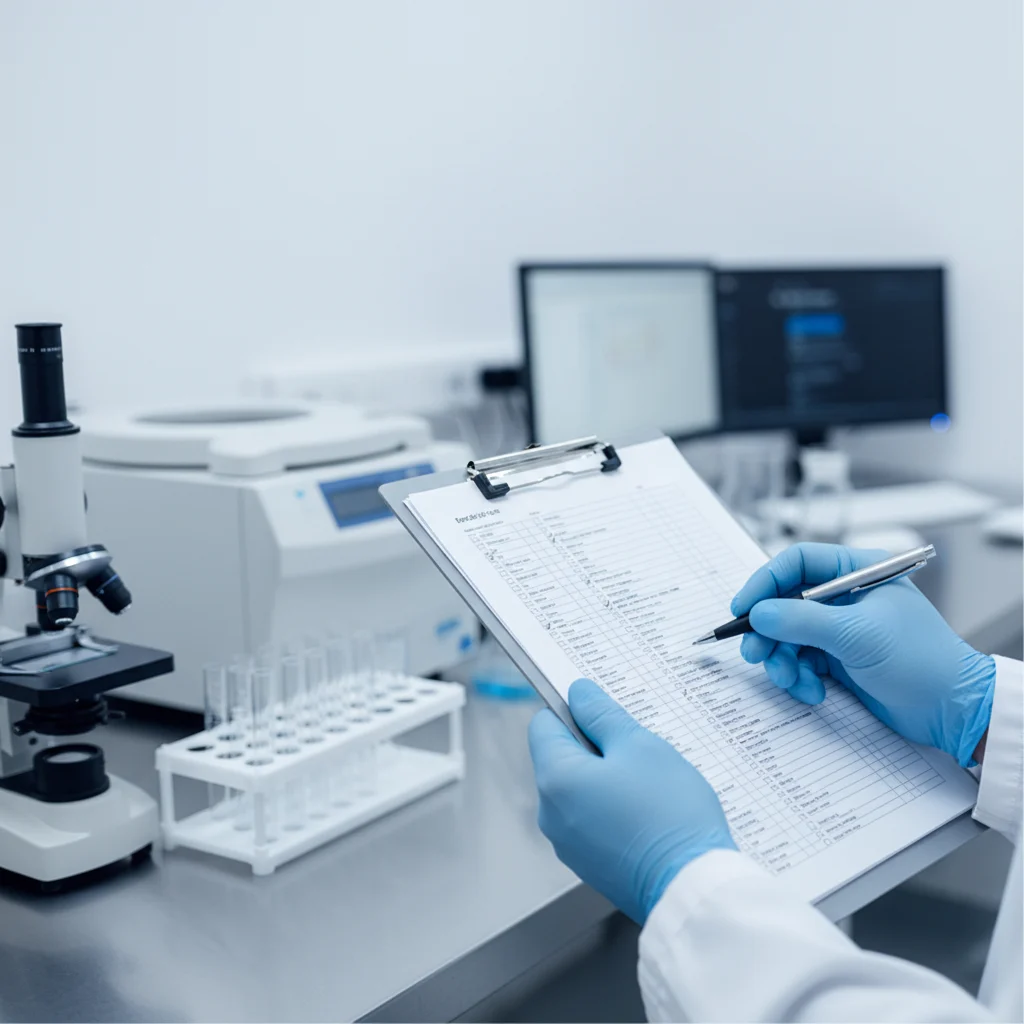
All our certifications and authorizations are subject to periodic inspections by external bodies (Swissmedic, FACT, FOPH, ICCBBA).
During these audits, SSCB is analyzed in every detail:
Only by passing these checks can SSCB renew its certifications. This system of verifications represents the strongest guarantee for our clients: choosing SSCB means relying on a certified, controlled, and globally recognized biobank, safe at all stages and for every type of stored sample.

Certified Swiss Biotech company a leader in stem cell preservation.
